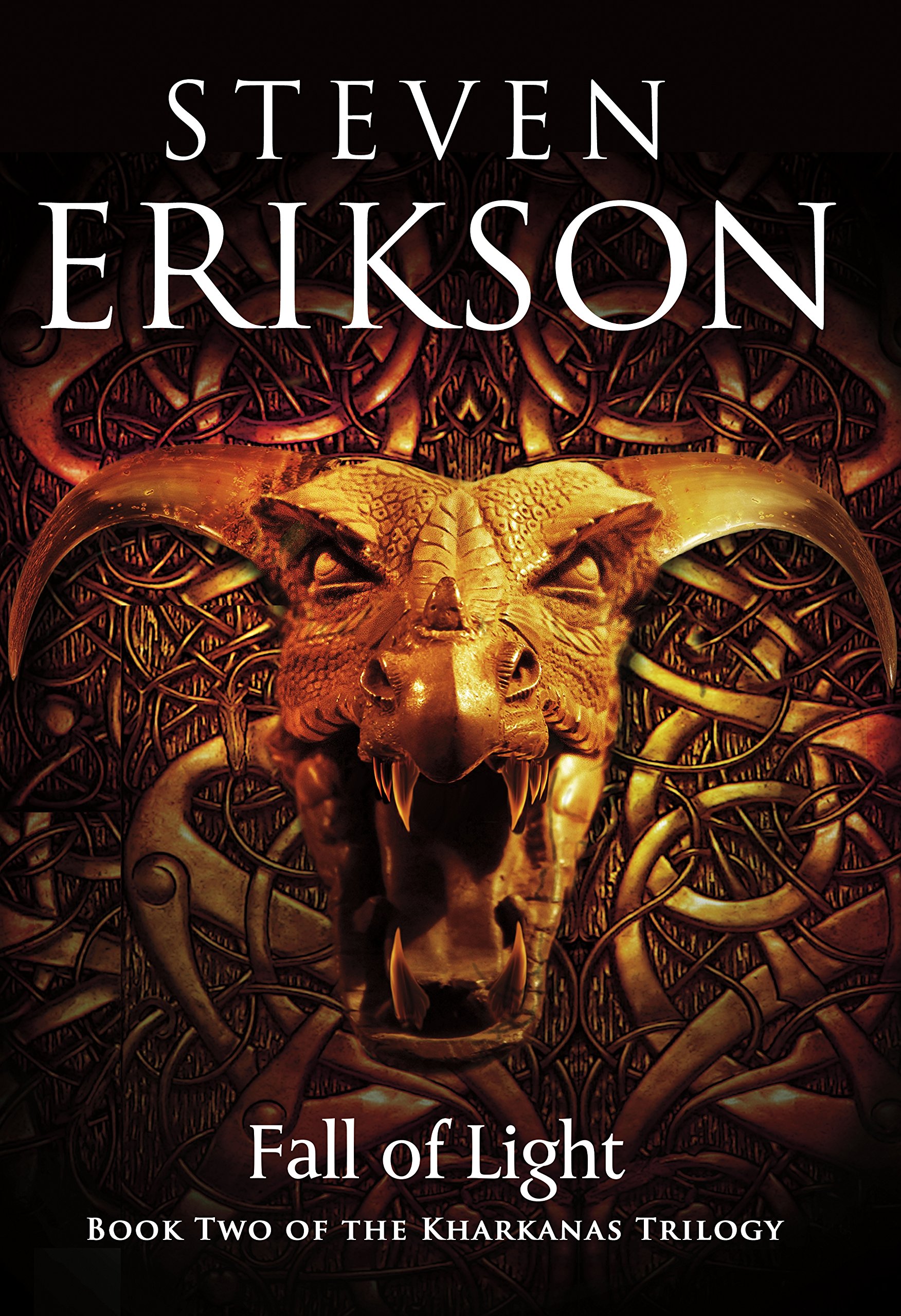This second installment of the Kharkanas Trilogy explores the effects of Draconus’s gift to Mother Dark. In particular, it delves further into the emotional torture brought about by war, a war that began because of one man’s love.
Kurald Galain is in the throes of a civil war. Anomander Rake leaves Kharkanas to seek for his brother Andarist who is still mourning the brutal murder of his betrothed. Silchas Ruin tries to shoulder the responsibility left by his older brothers by gathering the Houseblades of the noble families and recreate the Hust Legion. But will this be enough to stop Vatha Urusander’s Legion led by Hunn Raal? Rall wants Urusander to marry Mother Dark to depose Draconus. Moreover, those opposing Mother Dark’s power found an ally in the former high priestess Syntara who is forming the Cult of Light.
Meanwhile, Hood gathers an army to fight Death. The Jaghut, Jheck, Dog-Runners, and Toblakai and those seeking for answers join Hood. Magic is also bleeding unchecked into the world. K’rul and Skillen Droe set out to heal the wounds where this terrible sorcery came from but they were not the only entities out to seek these untamed powers.
In Forge of Darkness (first book in the trilogy), Erikson went a step further by exploring the human psyche as it was affected by love, war, violence and jealousy. If it is possible to go up another notch, Erikson has done that in Fall of Light. Every character seemed intent on pouring his or her heart out. If you’re into this type of narrative, I think you’ll get a full treat. But for those who are looking for action, the book starts with a slow pace at the first half. It picks up gradually towards the end just before the battle between Silchas Ruin’s gathered forces and Urusander’s Legion. It all would have been worth it if he did not choose to gloss over that battle though.
I would not have minded if all the characters were philosophers-wannabe, but it lacked the quality and variation that distinguished the Malazan Book of the Fallen series from others in the genre. It was like listening to the same problem over and over again, although Erikson still does this better than most other writers who have attempted this. I wish it was spread out evenly throughout the book but I guess it was his intention to begin with that pace. I did not have to know what every character thought. He could have picked evenly from among the characters and did not decide to give everyone a chance to speak.
If you’re reading the series to gain more information, the book has plenty of easter eggs. There are some light moments in the book, which I’m glad was interspersed between the monotonous droning of some characters. I still enjoyed the book despite my misgivings. The only real problem I had was the last fight. I was looking forward to it because he was building up to that last scene slowly.
Once again, Erikson proves that he’s the best in the high fantasy genre. He’s quite ahead above the others when it comes to storytelling and world-building.
Rating: 8 out of 10



No comments:
Post a Comment
Comments are always welcome! Please keep it clean.